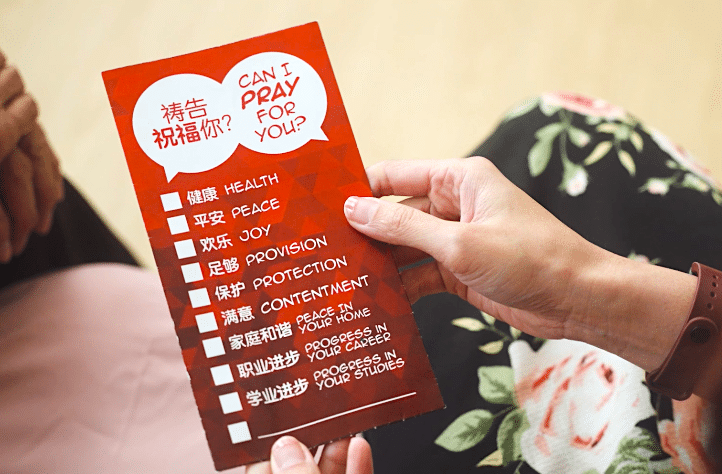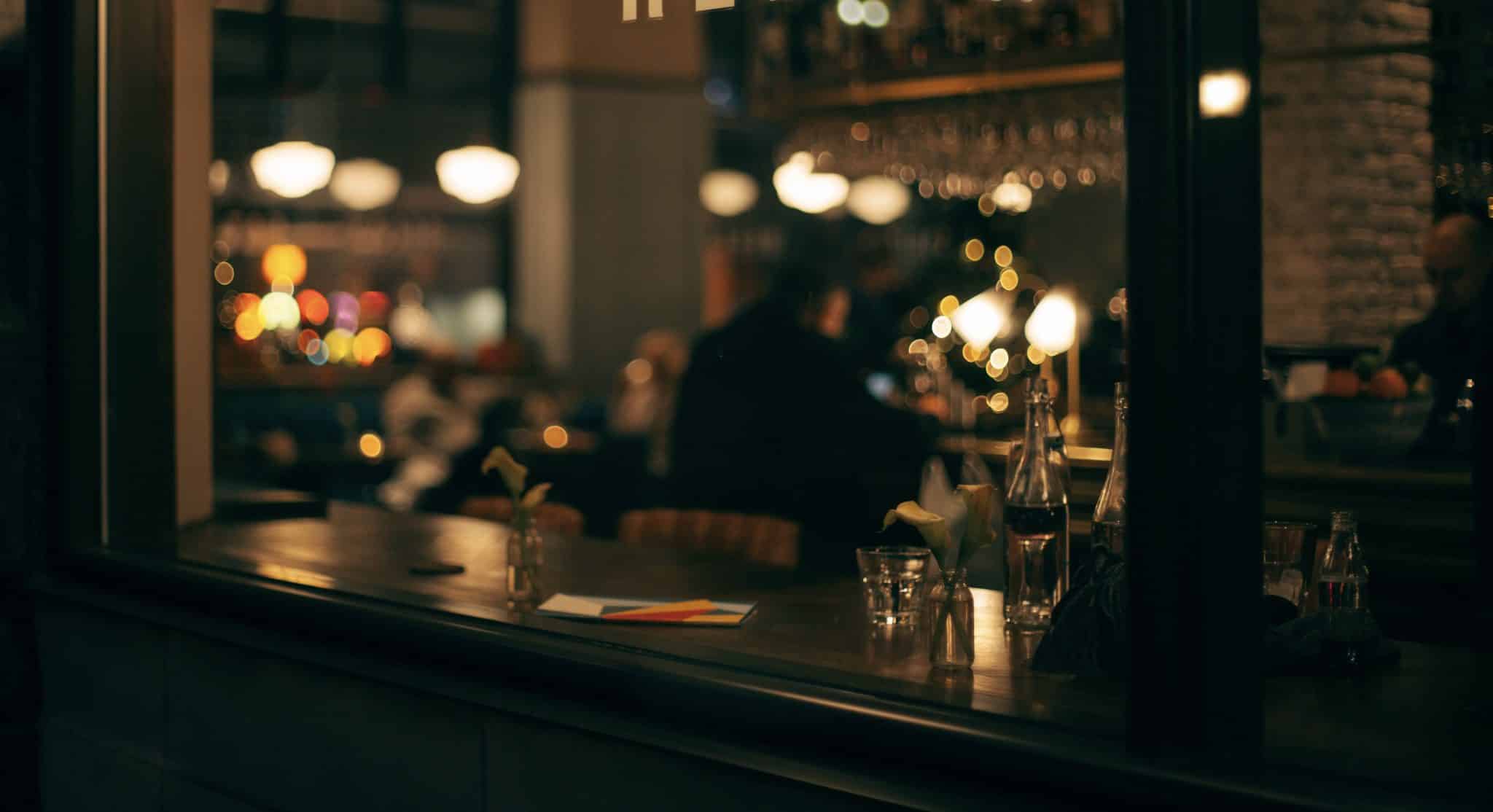We need encouragement in the good times too, says Thought Collective co-founder Tong Yee
Tong Yee // February 14, 2020, 4:34 pm

"It is so important to encourage each other at this time. But it is equally important to give and encourage even when it is not a crisis," Tong Yee writes. Photo taken from Tong Yee's Facebook note.
The very nature of crisis is that it will always demand from us more than we are prepared to give.
We each live in habits and routines that in normal circumstance should promise us an equilibrium in giving and receiving.
All people strive to reach that balance in life, to not feel in deficit after we extend our energy, gifts or belongings to others. Having that balance invites peace and security, and a sense that life is worth living.
Having a balance between giving and receiving invites a sense that life is worth living.
Some, however, do not live that luxury.
Either because of vocation or circumstance, many need to contribute more than they receive, making their service or giving painful or unsustainable.
At the most basic, family or parenting demands this from us. We give a lot and, oftentimes, sacrificially. Some vocations also demand we give more than we will ever have time to receive. And yet others can live in compromising abuse, or health conditions, or disability that can create great deficit.
Why give more?
In times of shared crisis like this COVID-19 situation, all of us, regardless of circumstance, are expected to give nonetheless.
When already in deficit, people tend to grab all the more. In contrast, those who have the privilege of living in cultures of abundance can exhibit calm.
The very nature of crisis is that it will demand from us more than we are prepared to give.
The unfortunate reality is that there are people who already live in fear. Sometimes impoverished, or habitually ingrained to believe that no one will take care of them, crisis can force even more introversion and show up in what seems like selfish behaviour.
There are others in vocations that compel them to give because of ethos or professionalism, even though they have little left to offer. Similarly, they can become introspective, burnt out or become depressed.
It is important to understand that when we are in deficit, and are expected to give more, the human will always ask: “Why?” Or, “Why should I?”
“If I have already given everything, why should I be expected to give even more?”
When expected to give more than what they usually do, people need that reason. And the story that allows us to give more than what we already can is called “mission”.
The fear of expectation
I speak first to the many professionals whose work puts them at the forefront of this crisis: Your giving is not unseen.
To the many professionals whose work puts them at the forefront of this crisis: Your giving is not unseen.
You are expected to give more now when you already give everyday. No one knows about your families or relationships, or whether you are already in personal deficit. But your professionalism demands that these personal circumstances remain invisible as you are expected to give anyway.
I can imagine that for many of you, you give with pleasure – and would continue to do so, if it were not so painful. And I know that you often search for the reason why.
For those that are scared now, I know that this fear is not unfamiliar.
Fear does not rise so quickly and rapidly and insanely if it is not already living in our psyche or veins. Your circumstance and life so far has demanded a lot from you. And I understand that relationships may not have been kind. Life may well have shown you that if you do not take care of yourself, no one else will.
From what I have seen of our systems, this does indeed happen to people. And I am sorry that this may have happened to you. I get why there is scrambling for resource.
Please, take care of yourself and what you have. I pray your fear one day leave you. Meanwhile, I will do what I can in hope that you may somehow experience the world otherwise.
The place of conviction
And this is why it is so, so important in this season, that for those of us who have had the privilege of experiencing abundance, or still have some to give, to encourage those who cannot.
Many are searching for reasons to continue to give further.
Our encouragement and honouring of people is not a “nice-to-have”; it is the very means that a person learns to give sustainably.
For professionals, their skill sets or knowledge are needed and they cannot run – even though they sometimes want to. Showing them the meaning of what they do, giving flesh to what they only know in concept, is critical. How else are they expected to sustain?
This is where our identity and convictions form. When people are given the reason why they sacrificially give in times of crisis, it creates a place of conviction that deepens the source of where they give from.
That sense of mission is what allows them to give to the levels that is expected of them.
Our encouragement and honouring of people is not a “nice-to-have”; it is the very means that a person learns to give sustainably. When mission and meaning are clear, we really do debate less why we should give.
Precedence of gratitude assures us that it will go some place good.
What crises demand
For our fellow citizens that are fearful and experienced by others as being disappointing during this period, I hope we can see that for many of them, this is not an indictment of their poor manners or behaviour. Perhaps it is symptomatic of the lives that are not taken care of even when in times where there is no crisis.
Crisis is a crucible that burns away pretence and reveals habits.
It may not be an indictment of them, but rather how we live as a society on the day-to-day.
When in crisis, we witness a sizeable part of our population focus on taking care of themselves. That is not a revealing of uncivil behaviour. It is a revelation that this is the way that many of them have had to live. It simply becomes visible when we share the same crisis.
It is so important to encourage each other at this time. But it is equally important to give and encourage even when it is not a crisis.
Human beings are really nothing but our habits – how we behave in good times, and how we behave in bad.
The very nature of crisis is that it will demand from us more than we are prepared to give. That is what crisis does. It is a crucible that burns away pretence and reveals habits.
Let us focus on giving each other reason to keep doing what encourages all of us, in both good times and bad.
This was a Facebook note by Tong Yee and is republished with permission.
Novel coronavirus: Homeless Hearts SG takes to the streets to care for destitute
We are an independent, non-profit organisation that relies on the generosity of our readers, such as yourself, to continue serving the kingdom. Every dollar donated goes directly back into our editorial coverage.
Would you consider partnering with us in our kingdom work by supporting us financially, either as a one-off donation, or a recurring pledge?
Support Salt&Light




